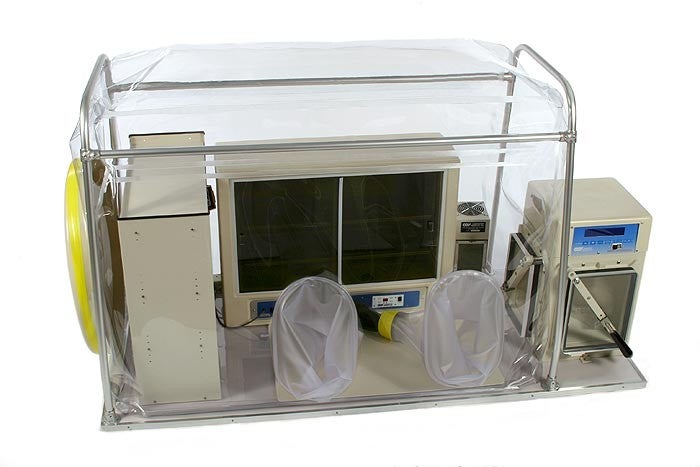This facility is a fully serviced research laboratory for studying the role of microbes in various geochemical processes at scales spanning the nano, meso and meter scale. The laboratory’s research interests range from field-scale research to fundamental investigations of molecular-scale microbial-metal-mineral redox interactions. Understanding these interactions helps predict contaminant mobility in the environment.
Laboratory experiments include microbial culturing, molecular, chemical and microscopy-based methods for identifying, enumerating and characterizing the activity of microbes. Bacterial communities involved in metal and sulfate reduction and environmentally important microbial products, and biogeochemical processes are also studied.
The application of this research is to help identify processes that control the mobility of heavy-metal contaminants in key geological settings. Applications include the remediation of metal-contaminated field sites, elucidating the role of microbes in modulating contaminant mobility, and the study of biogeochemical cycling in pristine environments.
Instruments
Laminar flow hood
- A laminar flow hood is an enclosed bench designed to prevent contamination of microbial cultures. Air is drawn through a HEPA filter and blown in a very smooth, laminar flow towards the user.
Sample preparation and handling
COY Anaerobic Chamber
- Anoxic chamber used for culturing and handling anaerobic bacterial cultures and oxygen-labile samples.

Lyophilizer
- Lyophilizer or Freeze-dryer used for sample preparation and to preserve redox-sensitive material.
Incubator
- Temperature controlled incubator for incubating bacterial cultures.
Oven
- Basic oven for drying glassware.